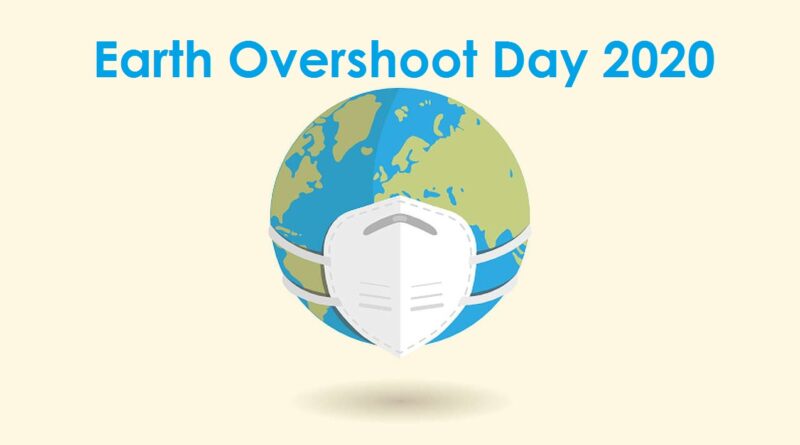Earth Overshoot Day 2020
This year, Earth Overshoot Day occurs on August 22.
Earth Overshoot Day is the day when humanity’s demand for ecological resources and services in a given year exceeds what Earth can regenerate in that year. In 2019, we had this day on July 29, the earliest it had been since the Global Footprint Network started calculating this day in the 1970s.
It marks the imaginary point when humanity’s demand exceeds what Earth can regenerate in that year. From today onwards, we have used every last bit of natural resources that Earth can provide within one calendar year and are now living on ecological credit, as calculated by Global Footprint Network, an environmental research organization.
Global Footprint Network has been doing this annual assessment since 2006. Since then, Earth Overshoot Day has been creeping earlier most years. This year, with the coronavirus pandemic putting a dent in the global economy, was one of the few when it arrived later than the previous years.
August 22 is the average overshoot day globally but each country starts living on ecological debt at different times.
To maintain the deficit, countries will either liquidate their own ecological assets (by overfishing for instance), overproduce (emitting more carbon dioxide into the atmosphere) or import missing resources from their neighbors.
No nation makes it to the end of 2020 without widening this deficit. However, there are significant differences between one nation to another. While one planet would almost be enough to support the needs of Indonesians, we would need a little less than two Earths.

The worst student in the European class in Luxembourg with the country overshoot day set as early as February 16. At the other end of the spectrum, Moldova is only 23 days away from having enough domestic natural resources to supply its population’s needs.
For the first time in years, the global overshoot day has moved back. Last year, it landed on July 29 — nearly a month earlier. That’s a direct result of the coronavirus shutdown, which reduced humanity’s ecological footprint by 9.3 percent, according to estimates from Global Footprint Network researchers.
It’s likely that much of these gains will be eliminated if the world economy returns back to business as usual as the COVID-19 lockdowns ease. To keep us on the path towards sustainability, governments and businesses must re-evaluate and reimagine the way we can live and work – achieving a true and lasting change can only be achieved by a conscious, concerted effort.




